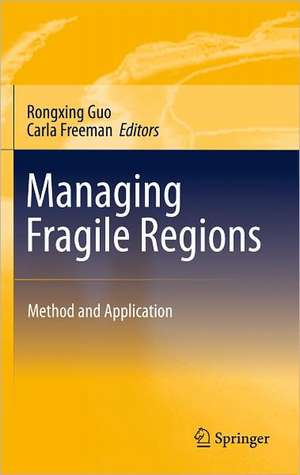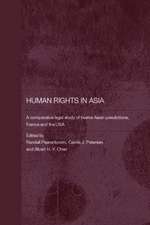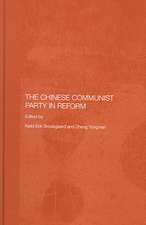Managing Fragile Regions: Method and Application
Editat de Rongxing Guo, Carla Freemanen Limba Engleză Hardback – 28 oct 2010
| Toate formatele și edițiile | Preț | Express |
|---|---|---|
| Paperback (1) | 635.31 lei 6-8 săpt. | |
| Springer – noi 2014 | 635.31 lei 6-8 săpt. | |
| Hardback (1) | 641.53 lei 6-8 săpt. | |
| Springer – 28 oct 2010 | 641.53 lei 6-8 săpt. |
Preț: 641.53 lei
Preț vechi: 754.74 lei
-15% Nou
Puncte Express: 962
Preț estimativ în valută:
122.80€ • 129.01$ • 103.20£
122.80€ • 129.01$ • 103.20£
Carte tipărită la comandă
Livrare economică 12-26 martie
Preluare comenzi: 021 569.72.76
Specificații
ISBN-13: 9781441964359
ISBN-10: 1441964355
Pagini: 174
Ilustrații: XV, 174 p.
Dimensiuni: 155 x 235 x 13 mm
Greutate: 0.45 kg
Ediția:2011
Editura: Springer
Colecția Springer
Locul publicării:New York, NY, United States
ISBN-10: 1441964355
Pagini: 174
Ilustrații: XV, 174 p.
Dimensiuni: 155 x 235 x 13 mm
Greutate: 0.45 kg
Ediția:2011
Editura: Springer
Colecția Springer
Locul publicării:New York, NY, United States
Public țintă
ResearchCuprins
Studying Fragile Regions: An Interdisciplinary Overview.- Fragile Edges between Security and Insecurity: China's Border Regions.- DMZ and Destiny of the Divided Korea Peninsula.- Territorial Fragility and the Future of Tibet: Sub-sovereignty, Problems and Solutions.- Boundaries, Territorial Disputes and Water Insecurity: Evidence from the Lower Mekong Basin.- Understanding the Determinants of Livelihood Recovery after a Large Earthquake.- The Characteristics of Earthquake-induced Geo-hazards in Mountain Areas.- NGOs and their Roles in Post-Earthquake Reconstruction
Textul de pe ultima copertă
This book gathers the work of leading scholars from several disciplines on fragile regions, especially those regions seeking to preserve, strengthen or create processes to restore or reestablish security and effective social and economic management. It tackles the multifarious issues that shape and affect fragile regions, drawing upon a wide range of intellectual and methodological approaches, including such fields as area studies, natural resource science, biology, environmental and resource economics and management, and political economy. The volume brings together the perspectives of a diverse group of contributors from Australia, China, Hong Kong, Indonesia, Japan, South Korea, and the United States.Managing Fragile Regions: Method and Application addresses a variety of factors – natural, political, administrative, legislative, economic, social, and cultural – and examines how they exert influences on the operational mechanisms of fragile regions, especially in the contexts of peace and security, economic development, and environmental management. The volume’s nine chapters cover a wide range of examples of fragile regions and their challenges. It will be of interest and utility to practitioners and policy-makers engaged in disaster management and post-disaster reconstruction. Students, researchers, and other professionals involved in resource management, regional science, and environmental science will also find it valuable reading.
Caracteristici
Presents an in-depth, field-based study of the impact and recovery from the 12 May 2008 Wenchuan, China earthquake Provides practical information and policy recommendations for the recovery from natural disasters in years to come Addresses issues such as natural resource impact, ecological damage, threats to minority cultures, and environmental recovery Includes supplementary material: sn.pub/extras

















